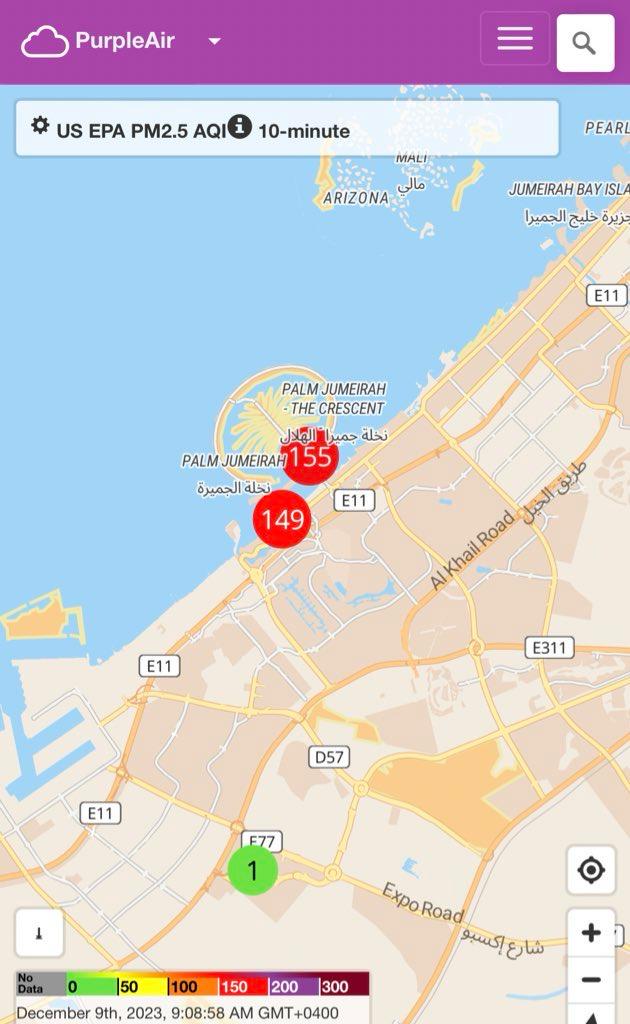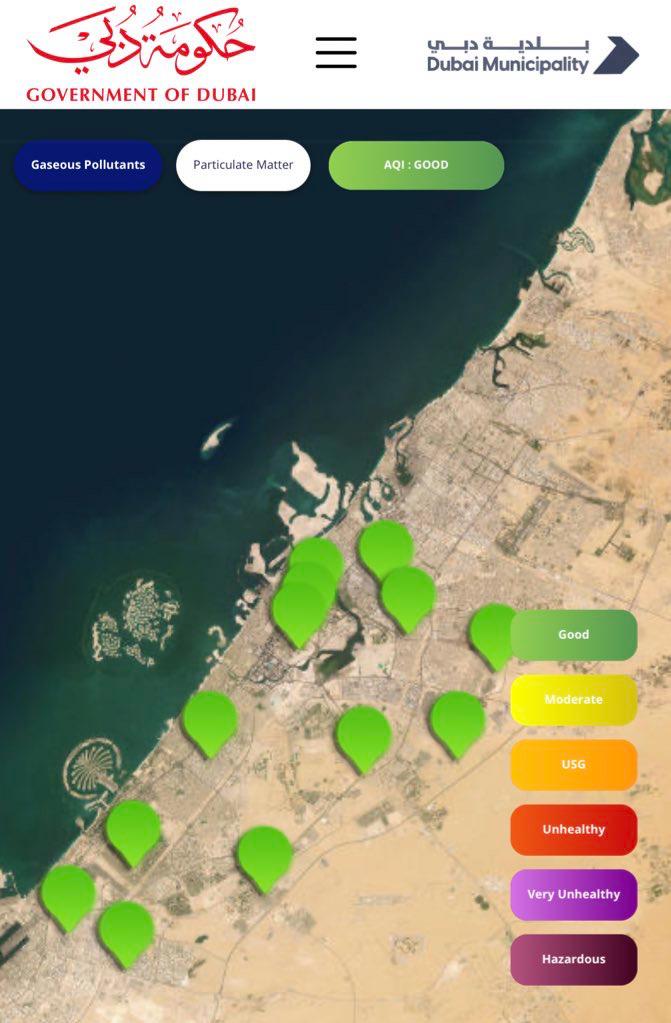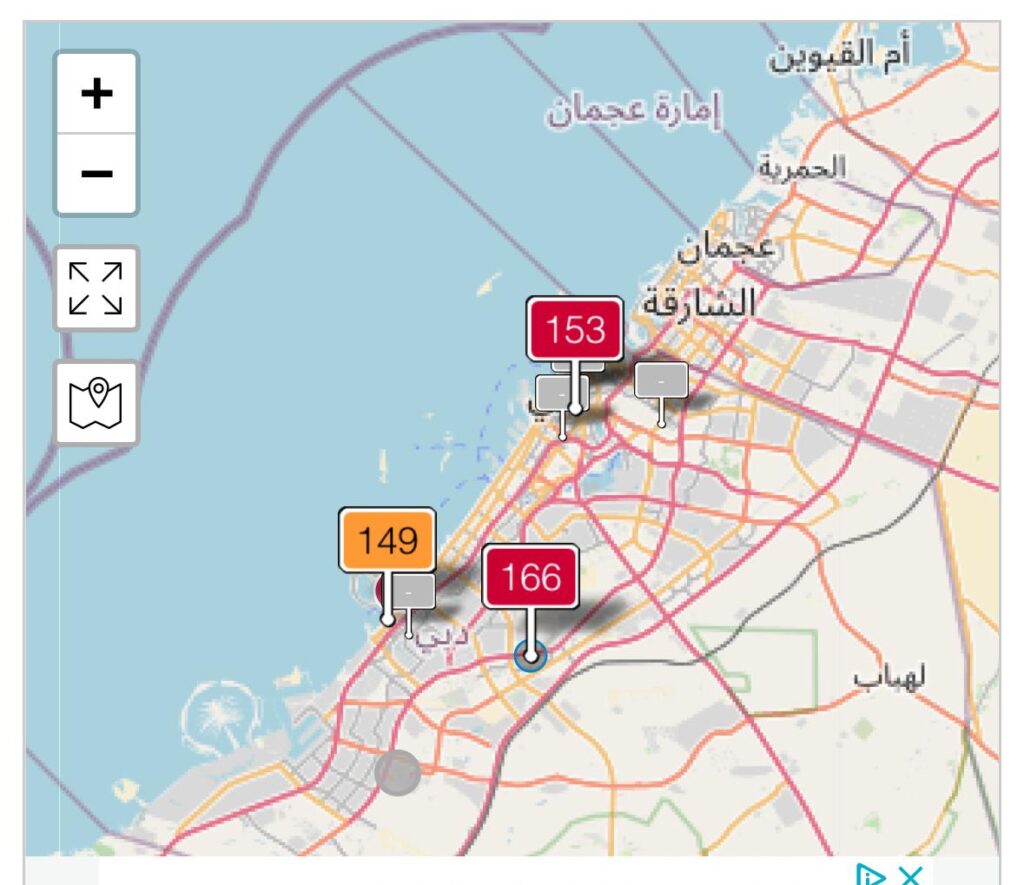As coughs resonated throughout the Dubai Metro and Expo City and with hazy skies at the backdrop of every skyscraper, the Emirati government’s official air quality monitors – Dubai Air Environment – displayed “good” air quality levels across the city. International air quality monitoring sites like IQAir and AQICN on the other hand showed the reality on the ground – the air tens of thousands of COP28 participants were inhaling was unhealthy.
According to a recent report from Human Rights Watch, the United Arab Emirates’ (UAE) fossil fuel production is contributing to dangerously high air pollution levels, similar to what was experienced over the past two days in Dubai.



According to IQAir, the air quality in Dubai, and Expo City, dropped to levels that were considered unhealthy on both Friday, December 8th, and Saturday, December 9th, 2023 but if you relied on Dubai Air for information, nothing was amiss (see screenshots).
The sky has been hazy with pollution on most days since COP28 began, with daily air quality readings up to five times above the WHO’s air quality recommendations.
The UAE has dangerously high air pollution levels, creating major health risks for its citizens and residents. According to the latest World Bank data, the mean annual exposure to PM2.5 in the UAE is more than eight times higher than what the World Health Organization (WHO) considers safe for human health.
Based on WHO estimates, approximately 1,872 people die every year from outdoor air pollution in the UAE.
For the sake of health, phase out fossil fuels…

Dubai’s air quality is heavily influenced by the pervasive impact of and reliance on the fossil fuel industry.
Emissions from vehicles, power plants, and industrial activities release pollutants like carbon dioxide, nitrogen oxides, and particulate matter into the atmosphere, significantly impacting both human health and the environment. With air quality at unhealthy levels, according to the United States Environmental Protection Agency (US EPA), everyone may begin to experience health effects; members of sensitive groups may experience more serious health effects. Residents face increased risks of respiratory ailments, cardiovascular diseases, and exacerbated allergies due to poor air quality.
Additionally, this pollution takes a toll on the environment, affecting local ecosystems, diminishing air quality-dependent flora, and contributing to climate change. Addressing these impacts requires a concerted effort to reduce dependency on fossil fuels, transitioning towards cleaner and renewable energy sources, and implementing stringent regulations to curb emissions from industrial activities. These steps are crucial for safeguarding public health and preserving environmental integrity.
The US EPA advises active children adults, and people with respiratory disease, such as asthma, should avoid prolonged outdoor exertion; everyone else, especially children, should limit prolonged outdoor exertion.
With that advice, we should be indoors, but with a sprawling COP venue, inhaling the polluted air has been unavoidable.